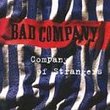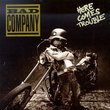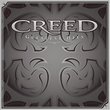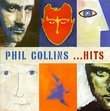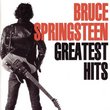| All Artists: Bad Company Title: Fame & Fortune Members Wishing: 3 Total Copies: 0 Label: Wounded Bird Records Original Release Date: 1/1/2005 Re-Release Date: 7/12/2005 Genres: Pop, Rock, Classic Rock, Metal Styles: Album-Oriented Rock (AOR), Arena Rock Number of Discs: 1 SwapaCD Credits: 1 UPC: 664140168428 |
Search - Bad Company :: Fame & Fortune
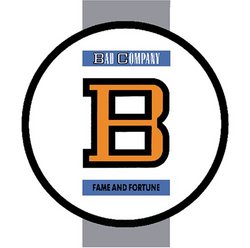 | Bad Company Fame & Fortune Genres: Pop, Rock, Classic Rock, Metal
|
Larger Image |
CD DetailsSimilar CDs
Similarly Requested CDs
|
CD ReviewsBad...Company???? Erick Bertin | Santo Domingo, Heredia Costa Rica | 10/26/2006 (4 out of 5 stars) "Well yeah, there you go: The first Bad Company album released by the reformed Bad Company. Released in 1986, the album features original members Mick Ralphs (Guitar) and Simon Kirke (Drums), with the addition of new frontman Brian Howe (formerly of Ted Nugent's band) substituting for original singer Paul Rodgers. While original bassist Boz Burrell appears credited as part of the lineup, a closer inspection of the liner notes reveals that session player Steve Price plays on the album, so it is unknown how much playing Burrell actually does. Many people complain with the usual "if it's not the original lineup, is not BC..." kind of thing... but the truth is that this lineup managed to produce some great music (reaching a moderate success with later albums) too. Some other people criticize the change in vocalists, and some even go as far as to accuse the band of choosing a "Richard Marx" (author of the late 80's fluffy, piano ballad "Right Here Waiting") clone. I got news for you: Brian Howe had already sung on Nugent's "Penetrator" album in 1984, which is at least a good 3 years before Marx's debut album and rise to fame, so if any one copied any one, it was Marx (I personally don't think so. People can actually sound like somebody else naturally, you know...).
This one is their first release after 3 years in hiatus, and the band sounds very different from its previous incarnation. Some of the elements of the last two BC records (Desolation Angels and Rough Diamonds) remain, such as the increased experimentation with keyboards/synthesizers, but for the most part, it is a departure from the traditional BC sound, which was very rooted in blues, country and a little R&B. "Fame and Fortune" is a (deliberate, if you ask me) move towards modernizing the band's sound to make it fit with what was being made in rock at the time. Instead of trying to compete with "hair metal", BC decided to explore the confines of AOR, producing rock that could appeal to adult listeners (possibly their long time fans) while at the same time tackling a younger (predominantly female) audience. Consequently, the album features more synthesizer use than ever before, as well as some sax solos, which ultimately create a sound that can easily remind you of bands like Journey, Foreigner or even Toto. And there is a very simple explanation for that: the album was produced by Foreigner producer Keith Olsen, and Foreigner's very own Mick Jones serves as executive producer and co-writer of several tracks. These influences are most evident on tracks such as "This Love" (featuring both extensive use of synths and sax), "Tell it like it is", "Valerie", "Hold on my heart" and "When we made love". The opening track, "Burning Up" is probably the one that comes closest to the band's trademark sound, even though it also features prominent synths. "Fame and Fortune", "That Girl", "Long Walk" and "If I'm sleeping" are other tracks where, keyboards and other refinements notwithstanding, the bands sounds closer to their early sound. Now, don't get judgmental just yet: yes, I admit it, both the synths and the sax threw me off a little on a first listen, but they really don't take away from the quality of the music. Sure, there's nothing groundbreaking here, but I think that it ultimately is a fine effort from a band that was trying to find its identity in a new decade with a new frontman. While this record failed to make much of an impression on fans and critics alike, I believe that it was the stepping stone necessary in their career, essentially doing all groundwork for their future success. Just to give you an idea: the keyboards aren't nearly as distracting as they were on Van Halen's "1984" (the most universally known record to feature synths), and they are more akin to the ones featured on Journey's "Don't Stop Believing" or "Faithfully", meaning that you'll hear them for sure, but they won't distract you from the song, as many of the synth-heavy records of that age tend to do nowadays. So, if you like the music and the sound of all those bands that I mentioned, you might wanna pick this one up. On the other hand, if you're more into the classic BC sound, this CD may not be the one for you. And finally, if you, like me, are one of those late BC fans that discovered the band around this time (I was born in '78, so I missed their glory days...), you'll probably appreciate this one. " |

 Track Listings (10) - Disc #1
Track Listings (10) - Disc #1
